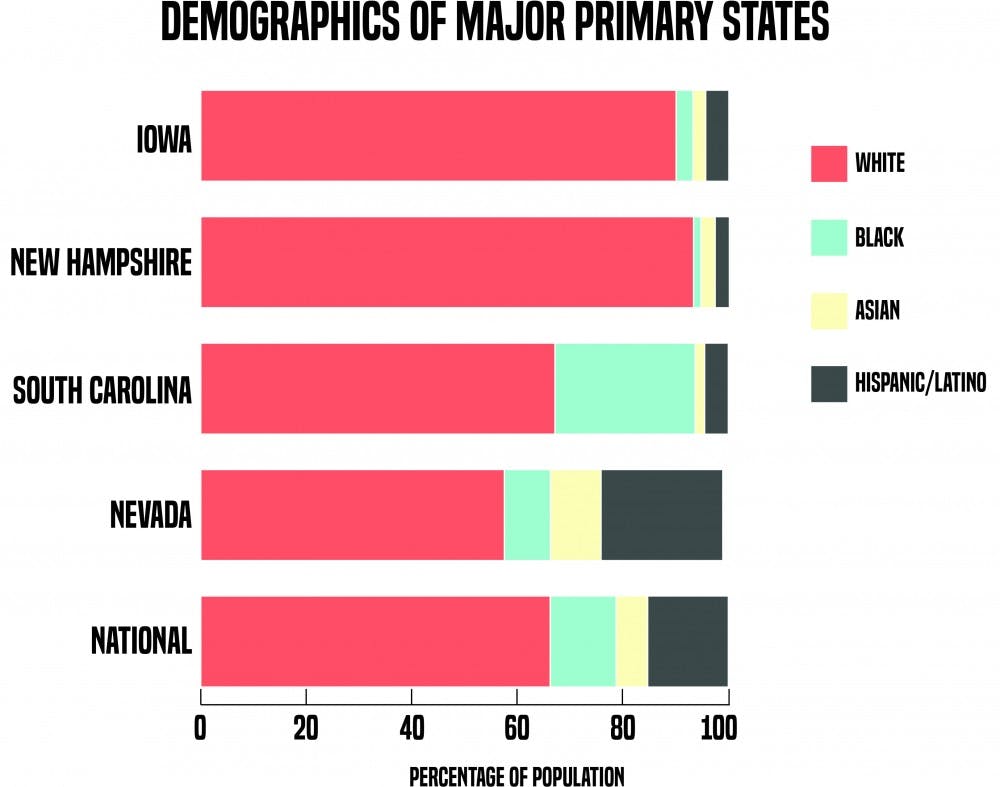Throughout the course of the 2016 presidential election, heavy discussion has taken place concerning the Iowa caucuses and the New Hampshire primaries.
But while they are the first two states in which voters cast their ballots for their preferred candidates, South Carolina and Nevada are more reflective of the national electorate.
Ninety percent of Iowa’s electorate and 94 percent of New Hampshire’s electorate is Caucasian, according to the United States Census Bureau. At a national level, only two-thirds of the U.S. voting-age population is white.
The lack of diversity in Iowa and New Hampshire poses challenges to generalizing results nationally.
In Nevada, more minorities are represented. Twenty-four percent of eligible voters in the Silver State are Hispanic, 9 percent are African-American and 10 percent are Asian.
In South Carolina, 27 percent of voters are African-American. The difference in percentage of white voters in South Carolina and the United States is less than 1 percent.
Considering the more representative populations of South Carolina and Nevada, candidates are fighting to get their messages out to voters.
Of the six remaining Republican candidates — businessman Donald Trump, Sen. Ted Cruz (R-Texas), Sen. Marco Rubio (R-Fla.), retired neurosurgeon Ben Carson, Ohio Gov. John Kasich and former Florida Gov. Jeb Bush — there is some diversity on the stage both racially and economically.
Though a variety of backgrounds are represented, early South Carolina polls reveal Trump and Cruz as the favorites to win. According to Real Clear Politics, Trump is the clear favorite and is projected to win by about 20 percent.
Early data from Real Clear Politics has former Secretary of State Hillary Clinton routing Sen. Bernie Sanders (I-Vt.) by at least 20 percent in South Carolina.
Winners in the South Carolina primaries have historically gone on to secure their party’s nomination — John Edwards in 2004.
Since 1992, there has only been one occasion where the Democratic Party’s primary winner did not get the party’s nomination. Since 1980, there has only been one occasion where the Republican Party’s primary winner did not get the party’s nomination — Newt Gingrich in 2012.
Nevada, which operates through a caucus format, has been less accurate in foreshadowing which candidate receives the party nomination. Nevertheless, its heavy minority population offers insight into how the national electorate may vote.
With North Carolina primaries taking place on March 15 and South Carolina primaries and Nevada caucuses being held Feb. 20-27, voters should be paying increased attention to results from more representative states.


